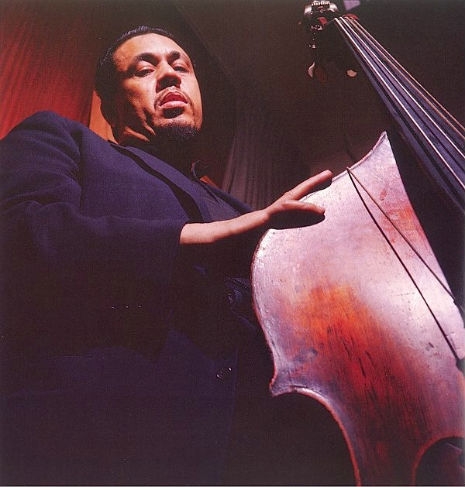
Tuesday, November 22nd, 1966, jazz musician Charlie Mingus waited with his five-year-old daughter Carolyn, to be evicted from his studio at 22 Great Jones Street, New York. Mingus had planned to open a music school and jazz workshop at this Lower East Side loft, but he had been frustrated in his intentions and had fallen behind in the rent.
As he waited for the NYPD and the Sanitation Department to arrive and remove his belongings, filmmaker Thomas Reichman recorded an intimate portrait of one of the jazz music’s greatest composers and performers. In the film, Mingus is seen moving distractedly amongst his boxed possessions, showing great affection for his daughter, recalling happier times living on Fifth Avenue, and acknowledging the inherent racism in America by offering his own Pledge of Allegiance:.
”I pledge allegiance to the flag—the white flag. I pledge allegiance to the flag of America. When they say Black or Negro, it means you’re not an American. I pledge allegiance to your flag. Not that I have to, but just for the hell of it I pledge allegiance. I pledge allegiance to the flag of the United States of America. The white flag, with no stripes, no stars. It is a prestige badge worn by a profitable minority.”
Reichman’s verite film is intercut with Mingus performing “All the Things You Are,” Take the ‘A’ Train” and “Secret Love,” at Lennie’s-on-the-Turnpike in Peabody, Massachusetts. The film ends with Mingus being arrested for possession of a rifle and a box of hypodermic needles. Outside on the street, an NBC news reporter asked Mingus:
”Do you deny taking the heroin?”
It’s the sort of low level kick-you-when-you’re-down question, that reveals everything about the interrogator and nothing about Mingus. The needles were legitimate, and were used by the musician for his Vitamin-B injections.
The following day, Mingus reclaimed the gun and needles from the police, after presenting them with all the relevant paperwork. Outside the station he quipped to reporters:
”It isn’t every day you see a Negro walk out of a police station with a box of hypodermic needles and a shotgun.”
Reichman’s film Mingus is a powerful and heartbreaking portrait of one of Jazz music’s most important artists.